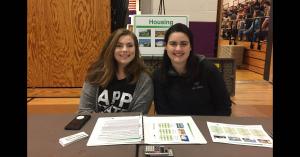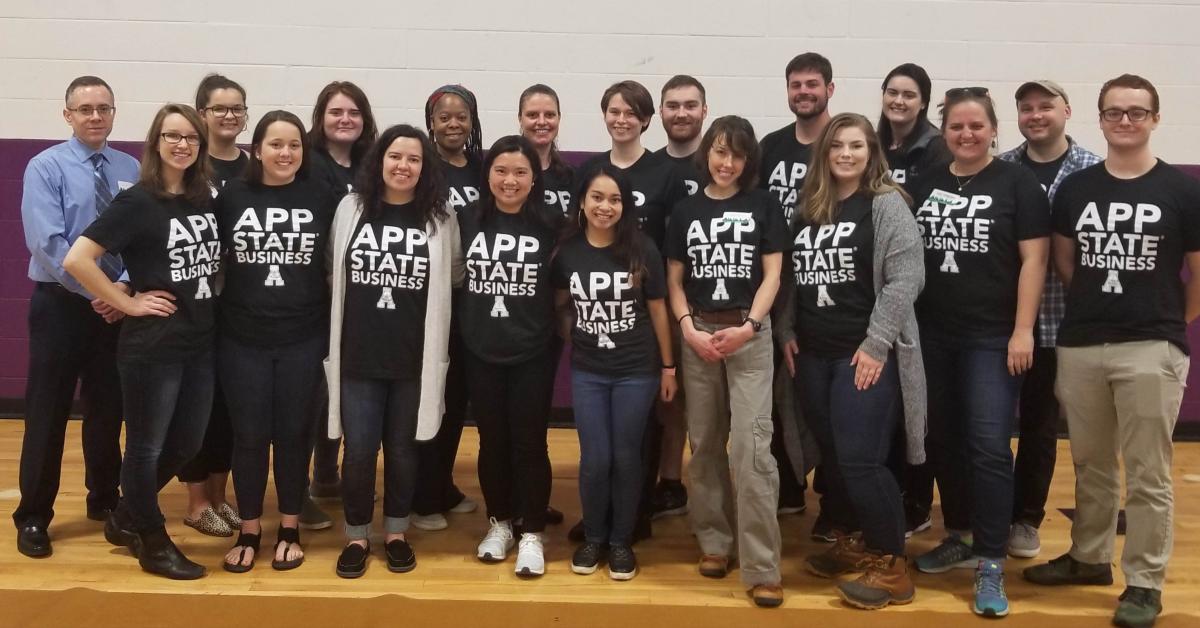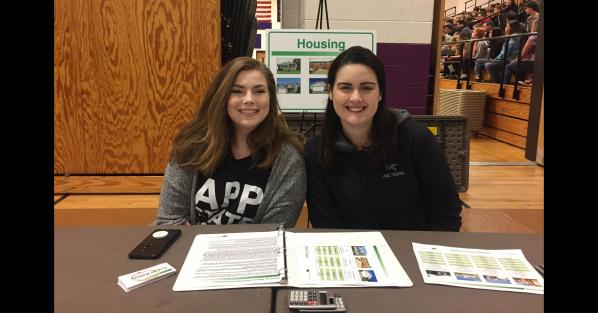Twenty Appalachian State University students and staff members traveled to nearby Ashe County High School April 12 to help high school students grow their personal financial literacy skills.
State Employees Credit Union (SECU) personnel collaborated with the Appalachian students to share with young consumers the pitfalls of personal debt. They joined forces to present Reality of Money, a financial literacy program.
The workshop was made possible by a partnership between SECU, Appalachian's GearUp Program, and the Walker College of Business.
During 90-minute sessions, groups of students were challenged to complete an exercise that tasks them with managing a family budget. The events were held in the gymnasium of Ashe County High School. Upon arrival at the workshop, the high school students received a student profile sheet that outlined the lifestyle of a prospective adult consumer. On the profile sheets, the participants found details such as the adult's occupation, credit status, level of education, marital status, parental status, the total number of people living in the home, a savings account balance and the prospective adult's income. The students were asked to determine how to cover expenses that are relevant to the lifestyles of actual adult consumers. Expense categories include housing, transportation, healthcare insurance, child care services, communication and entertainment.
The event allowed the Appalachian students the opportunity to share keys to success, like staying in school and earning a college degree. "We had meaningful discussions about the reality of money and the value an education can play in the decisions we will all face later down the road, said MBA student Katie Knight.
Both Knight and fellow MBA student Jacquelyn Parrish added that the Reality of Money workshop was valuable not only for the high school students who participated but also for the Appalachian volunteers.
"I worked the 'Childcare' station, where I presented students with two options of childcare, at differing costs, for their assigned number of children," said Parrish. "The look on students' faces when they realized how expensive childcare was for one month was priceless. I could tell they were taking notice of the gravity of their financial decisions."
The Reality of Money is one of several opportunities the Walker College of Business offers to community members. Finance Professor Bryan Bouboulis helps lead a variety of efforts for student fiscal literacy and responsibility.
Related: Financing the dream — staying fiscally afloat at Appalachian
Finance and banking major Jenny Zheng, another volunteer, said that serving the local community was as valuable an experience as running the simulation. "Financial literacy day was a awesome way for Appalachian State to give back to the community," said Zheng. "Interacting with the high school students and teaching them real life lessons and situations really opened our eyes on the need to teach younger students... before it's real life on the line."
Most student volunteers were members of student clubs, programs and student-led organizations in the Walker College, including: Executive Impact, Enactus, Beans 2 Brew, Bowden Investment Group, Association of Student Entrepreneurs, Finance Student Association, Phi Beta Lambda, Pi Sigma Epsilon and Walker Fellows. For more information on the 20+ business clubs at Appalachian, visit business.appstate.edu/students.


